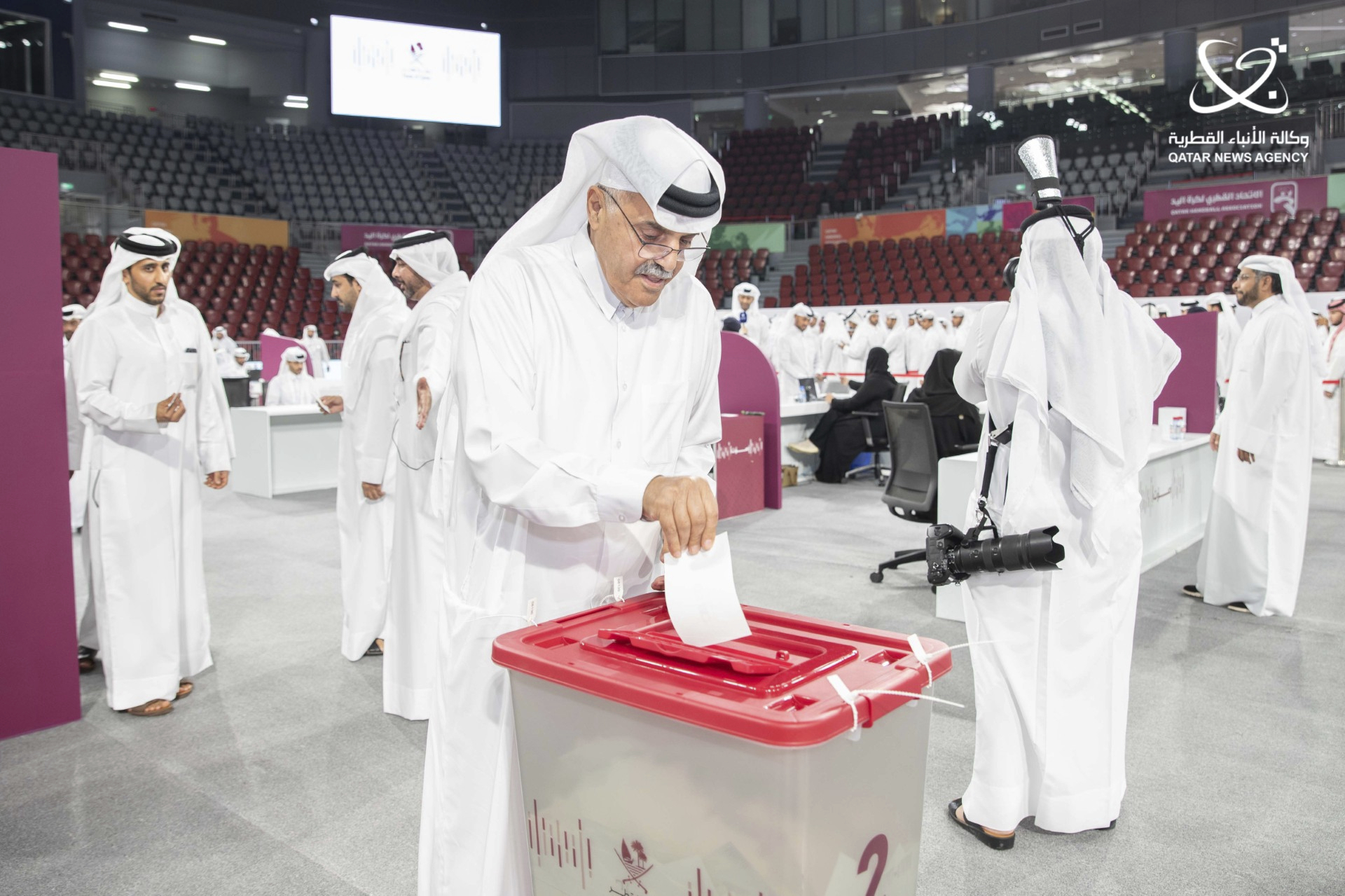Qatar decides on whether to end voting experiment amid US elections

Amid the U.S. elections, Qatar will decide on Tuesday whether to end its experiment of limited voting for legislative seats in the nation’s advisory council.
As the world’s attention focuses on the U.S. presidential election, the vote was scheduled only two days ago and follows an announcement last month by Qatar’s Emir, Sheikh Tamim bin Hamad Al Thani.
Voting will run until 7 p.m. (1600 GMT) and results are expected on Wednesday. All Qatari employees in the country also were granted permission to leave work beginning from 11 a.m. to vote.
While voters cast their ballots, Qatar’s state news agency described the voting as “an enthusiastic atmosphere and a historic moment, clearly confirming everyone’s keenness to make this national celebration a success.”
Qatar’s history of voting
While Qatar first introduced plans for legislative elections in its 2003 constitution, authorities repeatedly postponed implementing the vote. However, the country finally held elections for two-thirds of the Shura Council, which drafts laws, approves state budgets and advises the ruler, in October 2021.
The move to partial elections came after a yearslong boycott by several Gulf Arab states and amid mounting international scrutiny, particularly regarding labor issues surrounding Qatar’s preparations for the 2022 FIFA World Cup.
Qatar News Agency/AP
The impact
However, recent elections have stirred tensions within Qatar itself. Under its electoral law, only native-born Qatari citizens are eligible to vote or run for office, excluding naturalized citizens. Human Rights Watch has condemned the policy as “discriminatory,” disenfranchising thousands of Qataris. This exclusionary stance sparked protests across the nation, resulting in several arrests, revealing fractures in the country’s push for representational governance.
In announcing the vote on changing the constitution, Sheikh Tamim cited potential tensions within the nation’s tight-knit social fabric, noting that electoral competition among tribes and families risked fracturing traditional structures.
Identity Politics
“The contest between candidates for membership in the Shura Council took place within families and tribes, and there are different views regarding the repercussions of such competition on our norms, traditions, as well as the conventional social institutions and their cohesion.”
“The contest assumes an identity-based character that we are not equipped to handle, with potential complications over time that we would rather avoid,” he added.
This vote reflects broader regional dynamics as Gulf nations navigate limited moves toward representational governance following efforts by the United States to push harder for democratic reforms in the Middle East after the Sept. 11, 2001, attacks.
The region saw renewed aspirations for democracy following the 2011 Arab Spring, though such hopes have since diminished
In a similar move, Kuwait’s ruler dissolved the country’s Parliament in May for up to four years. Known as the Gulf’s most outspoken legislative body, Kuwait’s Parliament was unique in its ability to challenge the ruling family—though it, too, faced mounting internal struggles before its dissolution.
These actions highlight the challenges facing democratic movements in a region historically resistant to popular representation.
This article includes reporting from The Associated Press
Related
Qatar emphasizes importance of reaching agreement between US, Iran
CAIROQatar's Prime Minister Sheikh Mohammed bin Abdulrahman Al-Thani stressed the critical need for an agreement between the US and
International Women’s Day: Seeking a Balance with Ghada Al Subaey
1309’s Ghada Al Subaey of Qatar celebrates the many layers of femininity in her recent drop, called Labyrinth of Light. This International Women’s Day, the
Discover Ooredoo Plans and Services in Qatar
Ooredoo is the household name in the field of telecommunications and provides a full portfolio of telecom services: mobile plans for everyone, home
What Will The Imminent Qatar Airways Widebody Order Include?
Which Airline Alliance Do You Prefer To Fly With?












